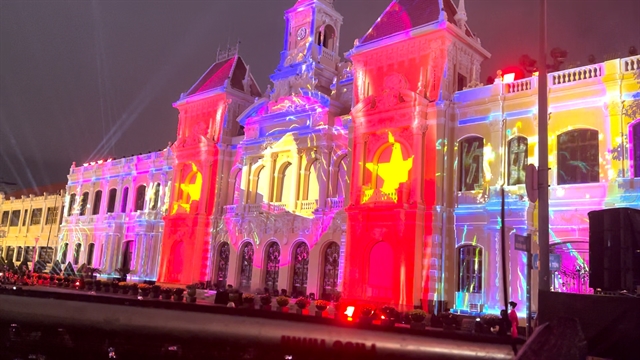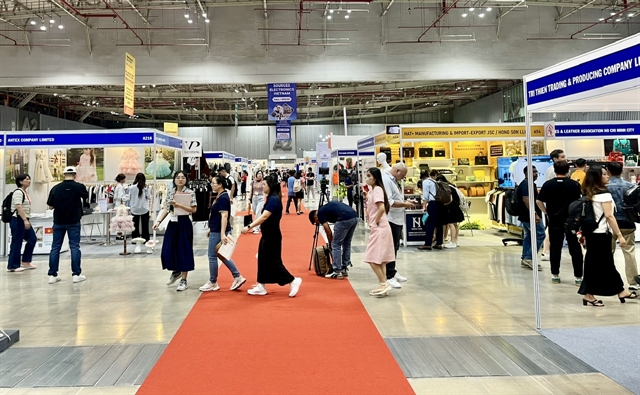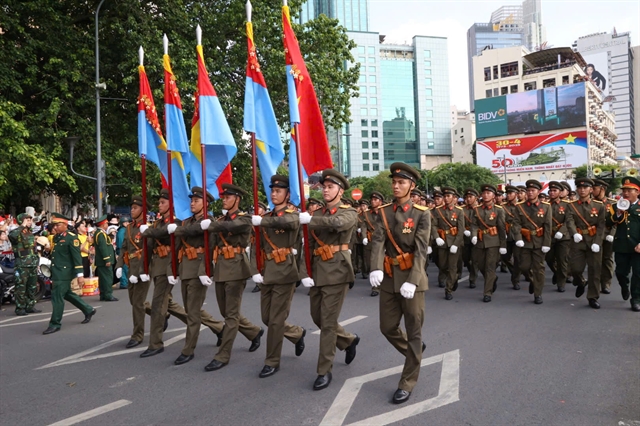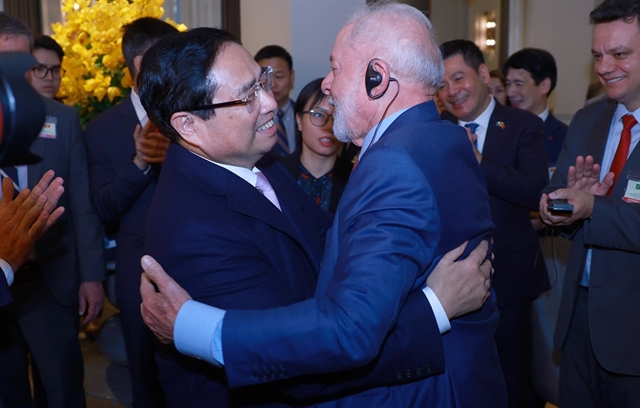 Politics & Law
Politics & Law

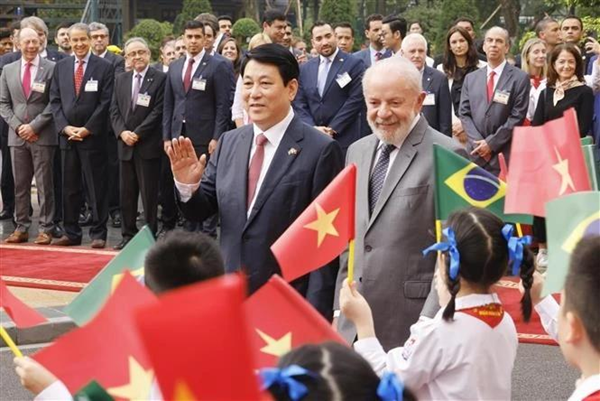 |
| State President Lương Cường welcomes Brazilian President Luiz Inácio Lula da Silva. VNA/VNS Photo |
HÀ NỘI — Brazilian President Luiz Inácio Lula da Silva has penned an article sharing his feelings about his second visit to Hà Nội from March 27-29 and assessments of the relations between Brazil and Việt Nam over the past 35 years.
President Lula da Silva's return to Hà Nội, 17 years after his first visit, lands at a pivotal moment. Last year, both countries not only celebrated the 35th anniversary of diplomatic ties but also elevated their ties to a new level. Since November 2024, they have officially become strategic partners.
This is more than just a diplomatic term, it is the fruit of a long-standing, sustainable partnership that brings tangible benefits to both nations. Since his first visit to Việt Nam, two-way trade surged from US$534 million in 2008 to nearly $7.7 billion in 2024.
Brazil now buys more from Việt Nam than from some of its traditional partners, taking pride in being Việt Nam’s largest trade partner in Latin America and a key supplier of pork, chicken, and cotton, contributing to Việt Nam’s food security and the growth of its textile industry.
Brazil’s economic growth considerably outpaced the average of developed countries last year, he noted, adding that the nation's stable legal and policy frameworks have created a safe business environment for investment and trade.
In the article, he is eyeing $15 billion in trade between Brazil and Việt Nam by 2030, fueled by higher-value exports.
Brazil is ready to supply modern aircraft for Việt Nam’s civil aviation sector and explore cooperation in national defence. Additionally, both countries hold vast potential for collaboration in sci-tech, innovation, and renewable energy, he wrote.
Brazil looks forward to working with Việt Nam in semiconductor development, artificial intelligence, and digital technology, he said, noting decades of experience in biofuel production, a clean energy solutions for the automotive, aviation, maritime transport, and even power generation industries.
Reinforcing bilateral ties is a necessary step amid profound global changes, he added.
According to him, Latin America and Southeast Asia stand as dynamic regions, contributing to shaping a multipolar world order. The GDPs of the Southern Common Market (MERCOSUR) and Association of Southeast Asian Nations (ASEAN) reached $2.8 trillion and $3.8 trillion, respectively, reflecting their significance on the global stage.
In times of uncertainty, collaboration is essential to ensure that a multipolar world is built upon fair rules and institutions, rather than being dominated by the influence of major powers. History has shown that the path to independence is the only one bringing prosperity to nations.
He wrote that Brazil’s firm commitment to multilateralism has driven its active participation in international forums. The country looks forward to Việt Nam’s support during its presidency of BRICS and COP30 this year. Việt Nam, with its strong voice in the Global South, remains a key partner in collective efforts to foster a more representative and responsive system of global governance that better serves the interests of developing nations.
As Brazil prepares to host major international events, it hopes to build on the successes of its recently concluded G20 presidency. Việt Nam actively participated in working group meetings and the G20 Summit in Rio de Janeiro and was among the earliest supporters of Brazil’s Global Alliance against Hunger and Poverty initiative.
The leader went on writing about cultural connections between the two countries. In Việt Nam, showing care often means asking if someone has eaten, while in Brazil, people express concern by cooking for one another. Cuisine is integral to both nations' cultures, just as food security remains a top priority for their governments. Having lifted millions out of poverty in recent decades, Brazil and Việt Nam have valuable lessons to share with the world.
Together, both nations can overcome challenges and drive a better future for all, the President concluded. — VNS

